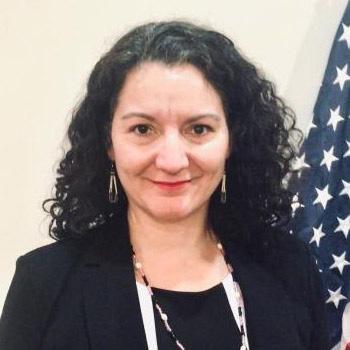N W AC HOSTS SU M M IT O F A M ER ICAS O N V I O L E N C E AGAI N S T I N DI GE N O US W OME N:
‘WE WILL BE SILENT NO MORE’ The knowledge that the violence suffered by Indigenous women in Canada is occurring with similar tragic results in every country of the Americas prompted the Native Women’s Association of Canada (NWAC) to call an international meeting to discuss ways to end it. That meeting, the International Summit of the Americas on Violence Against Indigenous Women, was held online over two days at the end of March. It drew human rights experts, academics, law enforcement officials, Indigenous leaders, and women working on the ground in their respective nations together to share ideas and information. In all, nearly 1,000 people registered to take part in the event, which was intended to be the genesis of an international movement to end the deaths and disappearances of Indigenous women, girls, and gender-diverse people. “The issue of violence against women and girls is both a serious human rights violation and, frankly, a major global public health issue on the order of the pandemic,“ Anita Bhatia, the Deputy Executive Director for Resource Management, Sustainability and Partnerships at UN Women, told the Summit. “This is an issue that affects all women and girls in all countries across all ethnicities, races, socioeconomic groups, and education levels,” said Ms. Bhatia. “However, the limited data that we have demonstrates that Indigenous women are even more affected than other groups.” Multiple speakers at the Summit decried the lack of verifiable numbers available across the continents to demonstrate the size and scope of the problem that a national inquiry in Canada has determined to be a genocide. But some statistics suggest Indigenous women in the Americas are murdered or sexually assaulted at rates that are 10 times higher than the rates experienced by non-Indigenous women.
“THIS IS AN ISSUE THAT AFFECTS ALL WOMEN AND GIRLS IN ALL COUNTRIES ACROSS ALL ETHNICITIES, RACES, SOCIOECONOMIC GROUPS, AND EDUCATION LEVELS,” - SAID ANITA BHATIA
“We're talking about our relatives, and we're talking about the inner connections with what they call intimate partner violence, trafficking, every form of violence—that continuum,” Brenda Hill, the Director of Technical Assistance and Training of the National Indigenous Women’s Resource Center in the United States, told Summit participants. The Summit ended with the presentation of a draft outcome document that urges an international response to the crisis. It calls upon Summit participants to, among other things, work together to collect data about the violence, collect best practices for combatting it, condemn states that fail to address it, and draw on the knowledge of human rights experts. The document, which was prepared by NWAC for the consideration of other Summit participants, urges follow-up meetings and the creation of a pan-Americas working group to explore ways to end the killing. (Continued on page 6)
KCI-NIWESQ • NWAC
5








